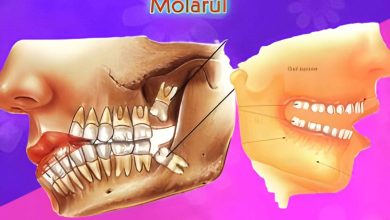Occupational Therapist-Occupation therapy has become a bright future prospect in the healthcare industry. You get a lot of opportunities to work and make a stable career. Occupation therapists work with orthopedic surgeons to maximize the treatment output. Occupation therapy is a type of healthcare professionals which has become popular in recent years. It is a compassionate job; you can positively impact a patient’s life differently.
Now we come across a very common question, “What does an occupational therapist basically do?” The function and responsibilities of an occupational therapist will be discussed in this article, as well as the degree, education, and job possibilities.
Table of Contents
Who is an occupational therapist?
Occupational therapist ( OT) is a highly reputed health profession that deals with the therapeutic application of occupation and lifestyle activities; their treatment course also involves physical, mental, cognitive, and emotional anomalies that affect the patient’s capacity to do the day-to-day job.
What is an Occupational Therapist?
Occupational therapy (OT) is an allied health profession that focuses on the therapeutic use of ordinary activities or occupations to address physical, mental, developmental, and emotional conditions that interfere with a patient’s ability to perform daily tasks. An occupational therapist has a profound understanding of therapeutic techniques to amplify rehabilitation and maintain a patient’s functional ability.
Associate professor and program director Dr. Michael Roberts, a leading occupational therapist of the county, explains that their main job as OTs is to support people to be more independent and give them a better life along with very few limitations and restrictions.
Occupational therapy treatment is different from other medical services callings like active recuperation or nursing. It emphasizes treating the entire patient rather than treating a specific physical issue, disease, or handicap. For instance, an attendant may help a patient torment the executives, dressing changes, and care during recovery after a medical procedure. A word-related advisor, then again, will evaluate the exercises that are essential to the patient and show them how to become free again following the medical procedure, so they can continue the jobs that characterize what their identity is.
As occupation therapists, we also maintain rehabilitation tools and restore, rebuild them, and improve the quality of life of their clients. Occupation is synonymous with the activities which we perform regularly. The main objective, task, and functionality define our identity. Here An OT’s job is to use occupation as a therapeutic tool to improve the quality of life of their patients.
Key Roles and Responsibilities:
As talked about above, word-related specialists work with their patients by adopting a helpful strategy to regular exercises. Extensively, this implies that word-related specialists are liable for assisting patients with creating, recuperating, work on concerning a condition or injury, just as keeping up with the abilities expected to execute everyday exercises. Yet, what does this involve?
Commonly occupational therapists are responsible for various responsibilities and tasks associated with patient care. Their department is assigned according to their job; the roles of an OT include:
- Measuring patient’s condition and requirements
- Design a treatment plan to understand patients’ requirements and help them meet their specific objectives.
- He will check the patient’s professional and personal environment, and providing guidance to improve his lifestyle increases movement flexibility and independence.
- Train patients and their caregivers for proper rehabilitation and teach them how to use special equipment.
- Measure and document progress for billing, health improvement, and reporting.
The day-to-day activity of occupational therapists is to take part in different rehabilitation programs and customized patient care routines for each client. Many occupational therapists work in a hospital; some of them have their own clinics. However, there are plenty of opportunities to work in challenging environments. Some practitioners work in educational management to support child development or help elderly people reduce the struggle that comes with aging.
The essential skill of an occupational therapist:
Communication skill: OTs should have solid composed and verbal, relational abilities to viably comprehend the requirements of their patients and clarify the treatment cycle. Furthermore, they should have the option to obviously report treatment plans and progress, just as team up with other medical services experts.
Problem-solving ability: An occupation therapist must have an excellent problem-solving ability because they have to determine which course of action is best to provide an effective solution.
Patience and flexibility: Occupational therapy is a versatile profession whose job is to restore patients’ independence. Good occupation therapists must be patient-friendly experts to deal with the positive and negative aspects throughout the process.
Require education:
Like any other healthcare profession, occupational therapy needs a high level of education and training to become an authentic licensed practitioner. Most occupational therapists carry a master’s degree in occupational therapy. Hand therapy is one subcategory of occupation therapy. Here Hand therapists deal with ailments related to hands, forearm muscle, finger joints and tendons. They focus on your gripping ability. They also provide treatment for wrist and hand arthritis.
Visit for more articles





